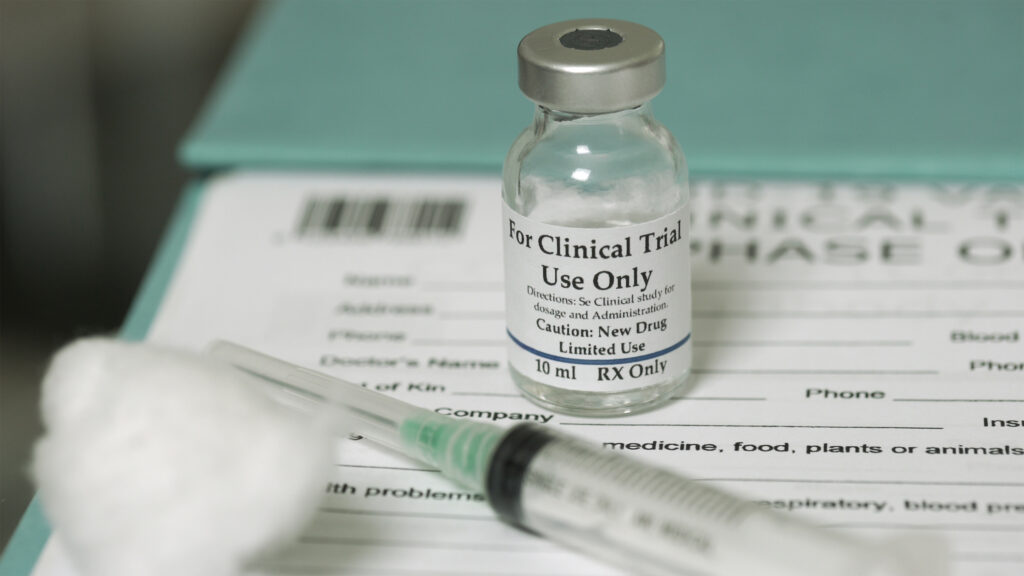Introduction to Clinical Trials
Clinical trials are a crucial step in drug development. They ensure new treatments are safe and effective before reaching patients. Small pharma companies often partner with Contract Development and Manufacturing Organisations (CDMOs) to navigate clinical trials more efficiently. CDMOs bring expertise in clinical manufacturing, regulatory compliance, and patient recruitment. Understanding the UK’s regulatory landscape and selecting the right CDMO can help you maximise your chances of clinical trial success.
The Importance of Clinical Trials in UK Pharmaceutical Development
Clinical trials gather data to determine whether a new treatment is safe and effective for its intended use. This includes testing in healthy individuals and patients with various health conditions. The goal is to compare the new treatment with current options and follow a structured scientific approach to minimise bias. Before a new drug, device, or therapy reaches the market, it must pass through rigorous testing.
Defining Clinical Trials and Their Role
Clinical trials are research studies that involve human participants. Their main objective is to answer questions about a new treatment’s safety, effectiveness, and potential side effects. Trials also study how a treatment works in real-world scenarios.
The goal of clinical trials is to determine whether a new treatment is safe, effective, and better than existing options. This includes understanding side effects and overall performance.
Clinical trials evaluate the safety and effectiveness of new treatments. These trials often pose challenges for small pharma companies with limited resources and experience. Partnering with a CDMO can be instrumental in achieving clinical trial success.
The Critical Path to Drug Approval: How Clinical Trials Fit In
A new drug must show safety and efficacy through clinical trials before it can be marketed. The data collected forms the foundation of the application submitted to regulatory authorities. These authorities review the data to decide if the drug meets safety and benefit requirements.
Each phase of the clinical trials builds on the previous one. The data gathered helps regulators make informed decisions about a drug’s market suitability.
The Three Clinical Trial Stages Explained
Phase 1: Safety and Dosage
Phase 1 trials focus on safety. A small group of healthy volunteers receives the experimental treatment. The goal is to determine the treatment’s safety profile, identify side effects, and establish appropriate dosage ranges. Researchers closely monitor participants for adverse reactions.
The information gathered in Phase 1 helps design subsequent trial phases and determine if the treatment is safe for further testing in larger populations.A crucial aspect of pre-transfer activities involves establishing a robust project management framework. A dedicated project manager, armed with a detailed transfer plan, oversees the entire process, coordinates activities, tracks progress, and fosters seamless communication between all stakeholders. Risk management takes centre stage during pre-transfer activities.
Phase 2: Efficacy and Side Effects
Phase 2 trials focus on effectiveness. A larger group of participants, usually those with the condition the treatment targets, takes part in the study. The main objective is to evaluate if the treatment effectively addresses the condition. Researchers also continue monitoring side effects to refine the safety profile.
Phase 3: Comparison and Confirmation
Phase 3 trials are the final step before regulatory approval. These trials involve thousands of participants and aim to confirm the treatment’s effectiveness. They compare the new treatment with the current standard treatment or a placebo.
Randomised controlled trials are common in Phase 3. Participants are randomly assigned to different groups to ensure unbiased comparisons. The data collected in Phase 3 provide robust evidence of safety and effectiveness, which supports regulatory approval.
Partnering with a Pharmaceutical CDMO: Advantages for Small Pharma
Navigating clinical trials can be resource-intensive for small pharma companies. Partnering with a CDMO helps you focus on research and development while relying on the CDMO’s expertise in manufacturing, compliance, and logistics. CDMOs streamline the clinical trial process, reduce costs, and accelerate timelines.
Expertise and Experience: How CDMOs Contribute to Success
CDMOs bring specialised knowledge and resources to clinical trials. They offer support in drug development, formulation, manufacturing, packaging, and regulatory affairs. Their expertise extends to clinical trial design, execution, and compliance with regulatory requirements.
By partnering with a CDMO, you can anticipate challenges, streamline processes, and ensure all regulatory standards are met. This helps you confidently move through clinical trials and focus on delivering new treatments to patients.
Streamlining the Process: CDMOs and Efficiency
Partnering with a CDMO allows you to streamline clinical trial processes. CDMOs have established infrastructure, standard procedures, and dedicated teams for every aspect of trial management, from manufacturing to regulatory submissions.
Outsourcing these functions saves time and resources. It enables faster trial initiation, efficient patient recruitment, and quicker study completion. CDMOs also have connections with clinical research organisations (CROs), regulatory authorities, and other stakeholders, ensuring smooth communication and efficient execution.
Navigating Regulatory Waters: CDMOs as Guides
Regulatory compliance is crucial for clinical trial success. CDMOs play a key role in guiding compliance throughout the process. They stay current with changing regulations, guidelines, and best practises, ensuring you meet all necessary standards.
CDMOs assist in preparing essential documents, like Investigational Medicinal Product Dossiers (IMPDs) and clinical trial applications (CTAs). Their expertise helps avoid delays and ensures that all regulatory requirements are met efficiently.
Selecting the Right CDMO: Criteria and Considerations
Choosing the right CDMO is a critical decision for small pharma companies. Several factors should be considered to ensure a successful partnership.
Consider the CDMO’s experience in your therapeutic area. Look at their track record of regulatory compliance, manufacturing capabilities, and overall cultural fit with your company. A transparent, open relationship and strong communication are key for a successful partnership.
Evaluate the CDMO’s location, capacity, and flexibility to meet trial requirements. Financial stability and a good industry reputation also contribute to a reliable and trustworthy partnership.
Preparing for a Clinical Trial: Essential Steps for Small Pharma
Preparing for a clinical trial requires a clear plan and attention to detail. A well-defined clinical trial protocol outlines the design, patient population, endpoints, and statistical analysis plan. This ensures the trial is conducted efficiently and adheres to all regulatory requirements.


Understanding Regulatory Requirements in the UK
Conducting clinical trials in the UK follows strict regulations designed to protect patient safety and ensure valid results. The Medicines and Healthcare products Regulatory Agency (MHRA) and the Health Research Authority (HRA) oversee these requirements.
Researchers must obtain approval from the MHRA before starting a trial. Additionally, clinical trials require ethical approval from a Research Ethics Committee (REC). The REC reviews protocols to ensure ethical standards, protect participants, and maintain scientific integrity.
Compliance with these regulations is essential for conducting legally and ethically sound clinical trials.
The Importance of Patient Recruitment and Retention Strategies
Patient recruitment and retention are critical for clinical trial success. These factors affect timelines and costs. Effective strategies to enrol a representative patient population and retain participants throughout the study are necessary.
Raising awareness about the trial, addressing patient concerns, and simplifying participation processes help attract participants. Partnering with patient advocacy groups and healthcare professionals expands your reach.
Retaining participants is equally important. Regular communication, reducing trial burdens, and providing adequate support help maintain engagement and minimise dropout rates.

Conclusion
Understanding the stages of clinical trials is crucial for successful pharmaceutical development. Each phase ensures a new drug’s safety and effectiveness. Partnering with a CDMO provides small pharma companies with expertise, efficiency, and regulatory guidance.
Navigating the regulatory landscape and focusing on patient recruitment strategies help streamline the process and increase the likelihood of clinical trial success. Selecting the right CDMO and adhering to UK regulatory requirements are key factors in achieving your clinical trial milestones.
Frequently Asked Questions
How do clinical trials contribute to drug development?
Clinical trials test the safety, effectiveness, and side effects of new treatments. They generate data required for regulatory approval, ensuring treatments are safe and beneficial before reaching patients.
Why should small pharma companies partner with CDMOs?
CDMOs help small pharma companies overcome resource and expertise challenges. They manage manufacturing, compliance, and logistics, allowing small companies to focus on research and development while saving time and reducing costs.
What should you consider when selecting a CDMO?
- Experience in your therapeutic area
- Regulatory compliance history
- Manufacturing capacity and flexibility
- Communication and cultural fit with your company
- Location and reputation in the industry
What role do CDMOs play in patient recruitment?
CDMOs often work with clinical research organisations (CROs) and leverage their networks to streamline recruitment. They help design and implement effective strategies to attract and retain participants.
What are the key regulatory requirements for clinical trials in the UK?
Trials require approval from the Medicines and Healthcare products Regulatory Agency (MHRA) and ethical approval from a Research Ethics Committee (REC). These steps ensure patient safety and scientific integrity.
Formulation
Development
Our team has extensive experience in selecting the correct oral, nasal and pulmonary dosage forms to ensure success in getting to the clinic.
- Formulation and analytical development
- Toxicology supplies
- ASAP stability to support clinical prototype selection
Phase 1 - Phase 2 Clinical Supply
We can help you accelerate to Phase 1 clinical trials through formulation optimisation and identify the next steps to transition into Phase 2 clinical trials following Phase 1 data.
- Clinical manufacturing and QC testing
- Qualified Person Release
- Clinical stability
Process Scale-Up for Phase 3
We understand the complexities of scale up and technical transfer. Covering all aspects from equipment consideration through to manufacturing handover and QC.
- Process optimisation robustness (Qbd, DoE)
- Method validation
- Cleaning validation